Why opinion polls still matter

A recent opinion poll capturing the views of young Bangladeshis aged 15-35 years has attracted attention both at home and abroad. One of the key findings of the survey, conducted by the South Asian Network on Economic Modeling (SANEM) and ActionAid Bangladesh, was that the youth have very little interest in political participation. I mentioned this disinterest in my column last month and received some pushback from readers. One of them, a physician working in Bangladesh, wrote to me, "Can you please explain to me how you reconcile the disinclination of the youth population to participate in political activities with the fervour they showed during the Monsoon Revolution of 2024?"
We are aware that the results of opinion polls need to be taken with a grain of salt. Most polls have some bias if you dig deeper into the sampling frame, sample size, and statistical tools of a survey. The SANEM survey was taken to task on the pages of this daily by Md Rubaiyath Sarwar, managing director of Innovision, a research and consulting organisation, on technical grounds. In his column, appropriately titled "What the SANEM poll reveals and what it does not," Sarwar pointed out certain weak points of the survey, including a small sample size and the bias introduced by a large percentage of non-respondents.
Incidentally, Innovision is among the research organisations that are in the "opinion survey" market. Earlier in March, it released the results of a survey of citizens' election-related perceptions using a larger sample size of 10,696 respondents across eight divisions and 64 districts.
Opinion polls are, in a sense, a necessary evil. They can often incur the wrath of those in power, or of individuals whose views are not corroborated by, or match, the information provided by a survey. Even in a country like the US, which prides itself on being the most open society in the world, polls are often dismissed as "fake." Recently, US President Donald Trump fired his chief of the Bureau of Labour Statistics (BLS) after the BLS published a job report that did not show the current administration in a favourable light. Trump even accused the former BLS commissioner of manipulating the data. I recall when Matia Chowdhury, an Awami League minister in 2013, characterised an opinion survey on voter preference for political parties by The Daily Star as "a waste of time and money."
As a social scientist, I usually find opinion polls useful. However, they are based on sample surveys and may not be suitable for everyone's consumption. Public opinion and economic surveys, nonetheless, are a critical part of the economic, social and political landscape of a country. While some polls, such as the inflation survey, are vital for monetary policymaking, others, like the "confidence index" or "favourability rating," receive mixed reactions from audiences. The reaction of politicians when polls do not favour their personal beliefs is well-known.
Sound economic and investment planning requires accurate data. Reliable data on the population's mood and preferences are necessary for effective policy and decision-making. As we all know, timely data on unemployment, market conditions, and the incidence of poverty are hard to obtain in Bangladesh. At this critical time for our country, better statistics can help the government control inflation and enable the central bank to manage monetary policy more effectively.
On a scale of 0 to 10, opinion polls conducted by many of our pollsters would rate 3 or 4 at best, while those carried out by market research experts would score a 9. The Federal Reserve of the US, the country's central bank, whose mission includes correctly measuring and forecasting inflation from different angles, relies on sample surveys to make many decisions on interest rates and monetary policy—decisions that affect the global economy.
Politicians generally dislike opinion polls. Some Bangladeshi leaders often say, "Do not spread rumours; they are a criminal offence." After the recent opinion poll results by various institutions were published, some sceptics were heard saying, "Oh, forget about the opinion polls, how much do they reflect reality?" Others label poll results as conjecture, hypotheses, or even phoney.
Rokon Uddin and Ronan Lee of Loughborough University offer the hypothesis in a professional journal named Asian Affairs that in Bangladesh, public opinion surveys have earned a bad name because of the way politicians have used them. In an article titled "Preference Falsification: Making Sense of Public Opinion Surveys in Autocratising Bangladesh," they pin the blame on unscrupulous politicians for the poor reputation polls have acquired in Bangladesh. In the end, though, they state, "Robust public polling has been described as a key marker of a politically free society."
The editor of this daily wrote in 2013 that if the Awami League leaders had taken notice of the opinion polls, reflected on them, and asked why they lost the mayoral elections that year, it might have spared the country the decade of trauma that followed.
Public opinion polls, especially those related to elections, have faced increasing scrutiny and scepticism in recent years. While they remain a valuable tool for gauging public sentiment, several challenges and factors can affect their accuracy and lead some to question their credibility:
Declining response rates: It has become harder for pollsters to reach a representative sample of the population as fewer people answer calls or participate in surveys. This means that those who do respond may not accurately reflect the broader public, introducing potential bias into the results.
Challenges in identifying and reaching target audiences: Mobile phone users often do not respond to anonymous or "spam" calls. Additionally, some demographics, such as younger voters, may be less likely to participate in polls.
The increasing influence of social media: While social media can provide insights into public sentiment, it also poses challenges. Influencers can spread misinformation and disinformation, potentially affecting voter opinions and distorting the broader political landscape. This can make it difficult to disentangle genuine public opinion from the effects of social media trends and biases.
Question wording and order effects: The way questions are phrased and their order can subtly influence responses, leading to skewed results.
Social desirability bias: Some respondents may give answers they believe are socially acceptable rather than their true opinions.
Difficulty predicting voter turnout: Accurately predicting who will actually vote is a major challenge in election polling, and misjudging turnout can significantly impact the accuracy of predictions.
However, it is important to note that many reputable polling organisations are aware of these challenges and strive to employ rigorous methodologies.
While opinion polls face genuine challenges, it is crucial to evaluate individual polls with a critical eye, considering their methodology and potential biases, according to Brookings. It is also important to consider the overall landscape of available polling data, rather than focusing solely on individual polls. Responsible and transparent polling practices, coupled with a nuanced understanding of their limitations, can help build an ecosystem that sustains youth participation in political activism and provides reliable feedback to policymakers.
Dr Abdullah Shibli is an economist and employed at a non-profit financial intermediary in the US. He previously worked for the World Bank and Harvard University.
Views expressed in this article are the author's own.
Follow The Daily Star Opinion on Facebook for the latest opinions, commentaries and analyses by experts and professionals. To contribute your article or letter to The Daily Star Opinion, see our guidelines for submission.

 For all latest news, follow The Daily Star's Google News channel.
For all latest news, follow The Daily Star's Google News channel. 
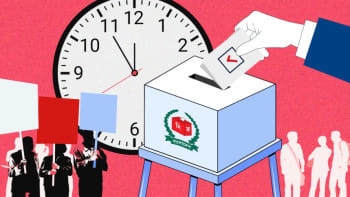


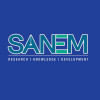

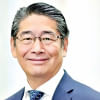
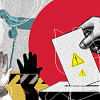


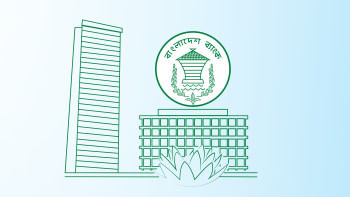
Comments